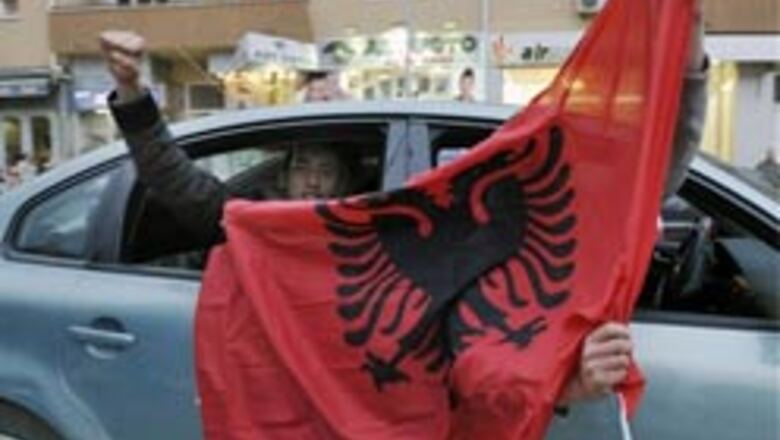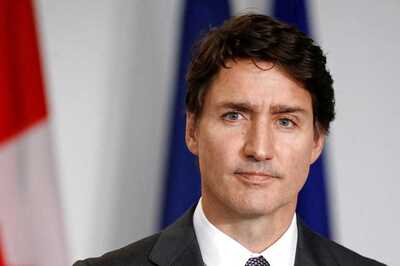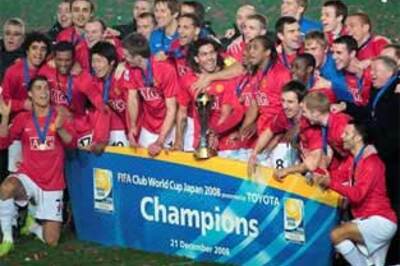
views
Pristina (Serbia): Celebratory cakes are already iced. Bottles of "Independence" wine are chilled and waiting.
After centuries of dominance by Serbia, a war that killed 10,000 people and a decade of UN rule, tiny Kosovo - poor, mostly Muslim but feverishly pro-Western - geared up to make a historic declaration of independence from Serbia on Sunday.
Spontaneous street celebrations broke out overnight out as a new reality - the birth of a nation - finally sank in for the province's ethnic Albanian majority.
"Independence is a dream for all the people of Kosovo, and I am very happy, like everybody," said a giddy Lumturije Bytyqi, 20.
But tensions soared among Kosovo's small Serb minority.
Many vowed never to accept the loss of a region they consider the heart of their ancestral homeland, and greeted secession as though it were an amputation.
"I'm asking all the Serbs to reject the monster state of Kosovo, and to do everything to prevent its birth," said Marko Jaksic, a Kosovo Serb hardline leader.
The dancing and drum-beating that pulsed through Pristina - awash in red and black Albanian flags with their distinctive double-headed eagle - contrasted sharply with the gloom gripping the ethnically divided northern town of Kosovska Mitrovica, a Serb stronghold and a flashpoint for violence.
"We are Serbs and this will always be Serbia," said a defiant Djordje Maric, 18, pointing toward a bridge that splits the gritty mining settlement in two.
"We are ready to defend our territories at all costs, including with our lives."
Although it formally remains part of Serbia, Kosovo has been administered by the UN since 1999, when NATO airstrikes ended the late Yugoslav leader Slobodan Milosevic's brutal crackdown on ethnic Albanian separatists.
Ninety per cent of Kosovo's 2 million people are ethnic Albanian - most moderate or non-practicing Muslims, the rest Roman Catholics - and they see no reason to stay joined to the rest of Christian Orthodox Serbia.
Prime Minister Hashim Thaci, a former leader of the now-disbanded Kosovo Liberation Army, was expected to call a special session of Parliament on Sunday afternoon to vote on a declaration of independence and unveil a new flag and national crest.
With Russia, a staunch Serbian ally, determined to block the bid, Kosovo looked to the US and key European powers for swift recognition of its status as the continent's newest nation.
PAGE_BREAK
That recognition was likely to come on Monday at a meeting of EU foreign ministers in Brussels, Belgium.
"We are creating a reality like never before," Thaci said as declaration day - "D-Day" to Kosovars - drew near.
Thaci announced the creation of a new Cabinet ministry to focus on minority rights, and the EU gave its final go-ahead Saturday to send an 1,800-member mission to replace the current UN administration.
But the imminent independence of the territory, roughly the size of Belgium or the state of Connecticut in US, threatened to touch off a diplomatic crisis and possible unrest within Kosovo.
Russian President Vladimir Putin, arguing that independence without UN approval would set a dangerous precedent for "frozen conflicts" across the former Soviet Union and around the world, pressured the Security Council to intervene.
In Belgrade, Serbian officials prepared a secret "action plan" they said would not include military action, and warned that Serbia would downgrade relations with any foreign government that recognises Kosovo's independence.
NATO, which still has 16,000 peacekeepers patrolling Kosovo, boosted patrols in the tense north and in scattered isolated enclaves where most of the Serbs live in hopes of easing the chances of violence.
Some Serbs have suffered reprisal attacks carried out by ethnic Albanians seeking to avenge the bloodshed of the 1998-99 war.
In the run-up to independence, there have been concerns that edgy Serbs might pack up and leave.
Their long-awaited nationhood almost upon them, many Kosovars expressed disbelief that it would actually happen.
For others, the joy was tempered by the extraordinary challenges that lie ahead: building a viable multiethnic society and lifting themselves out of poverty and 50 per cent unemployment.
But fresh posters plastered up around Pristina implored people - ethnic Albanians, at least - to relax and just enjoy the moment.
"Celebrate with dignity," they read, illustrated with bright red hearts.


















Comments
0 comment